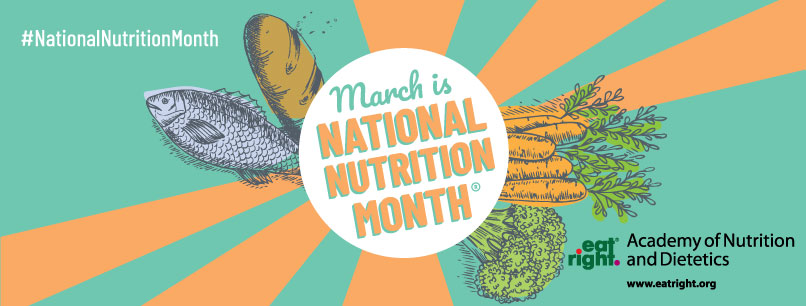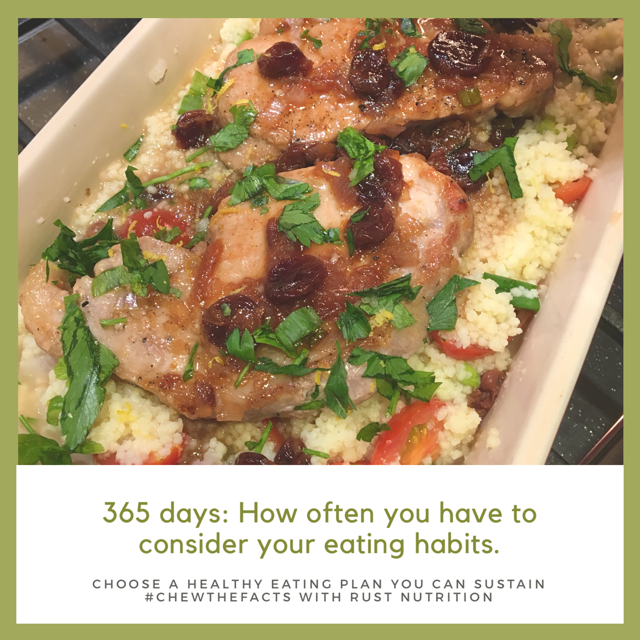
There are all sorts of people in the media offering you diet advice. Doctors, celebrities, naturopaths, chiropractors, holistic wellness coaches and other self-proclaimed nutritionists. Most of them focus on foods that you absolutely must eliminate (with an unsubstantiated focus on “organic”, “natural” and their perceived ideas about conventional foods). In some cases, supplements are sold (for high profits) with the pitch. How do you know how qualified they are?
When you see a registered dietitian nutritionist (RDN) you know that a minimum, standardized qualification has been met in the science of food and nutrition. If you are perfectly healthy, and only need to lose weight, a nutritionist or personal trainer can probably help you. But if you have any existing disease (e.g. high blood pressure, high cholesterol, diabetes, heart disease, gastrointestinal disease), it’s important to have an RDN overseeing your diet. If you have a strong family history of diabetes or heart disease, or are over the age of 40, it’s also a good idea to skip the fad diets and speak with a trained professional. If you are looking at “diet books“, it’s best to pick one up by an author with RDN after the name.
When a registered dietitian evaluates a patient, he or she considers multiple factors: their medical and social history, lab work, medications, what/where they eat, as well as their weight-change and fitness history. RDNs help you figure out the best diet plan for your life. They can do the planning work for you, and help you set goals.
Don’t Take Diet Advice from Just Anyone
When your friend says “I heard [insert food or ingredient] was bad for you”, don’t take it for fact. If you are using “doctor Google”, be sure to look for quotes and articles written by registered dietitians (RD or RDN will follow their name). When you scan a nutrition topic in the news, check more than one source. RDNs are trained to read the research, interpret the results, and create sensible advice based on the whole body of research, not just one study. Most dietitians take a “non diet” lifestyle approach. We combine a background in medicine, food, nutrition analysis, and eating behavior and patterns, and combine this into personalized advice.
While I recommend the DASH Diet and a Mediterranean style of eating, keep in mind the term “diet” here doesn’t infer weight loss, but instead simply describes a diet plan and a way of eating – a lifestyle. Long term weight maintenance and health depend on day to day behaviors. You can’t just eat well for a few weeks, and call it a year. Nor can you exercise for three months, and sit on the sofa for the other nine.

Ask Your Doctor to Refer You. Find A Good Fit.
Just like you choose a doctor based on qualifications and bedside manner, you want to find a dietitian that you are comfortable with. If your visit doesn’t go well, or you’re not comfortable, ask to see someone else.
A healthy diet isn’t just about food choices, but it’s also about the “how” and “why” you eat. In addition, there isn’t one meal plan that would fit everyone. What you need to eat depends on what you like (nobody is going to sustain a diet of food they don’t like) and what you need. While basic nutrition can be generalized as far as nutrient needs go, there are many ways to get adequate amounts of the nutrients you need into your diet.
Some doctors forget they can refer their patients to a dietitian, so ask for a referral. Most insurances cover a minimum amount of visits with a dietitian.
Here are 5 reasons to see an RDN over other nutritionists:
- A dietitian is going to help you with your habits, and provide you with science-based dietary advice.
- Diet therapy offered by registered dietitians is based in science. Dietitians have a broad understand about diet and disease. We also know how to evaluate your nutrition status. We take your medical history, lab results, and diet and weight history into account.
- If you have diabetes, gastrointestinal disease, or heart disease, you should definitely check in with a dietitian regularly to help you manage your disease and feel your best.
- Registered dietitians are trained to evaluate your health status, your diet, and medical history. This offers you a sustainable lifelong plan. Sorry, no quick fixes or fad diet plans work. They are especially harmful if you are treating life-long diseases such as diabetes or heart disease.
- Once you have a relationship with an RDN, it’s a good idea to check in with your dietitian regularly. This could be just once every couple of years, or when you are experiencing a transition or shift in your life. Plus, you can rely on that dietitian to answer any questions about “that advice your friend gave you about…”
Happy National Nutrition Month!





Woohoo! Great timing for Nutrition Month :). Preach !!
Happy NNM to you too! Love this post! 😀
Thank you Emily!! Happy NNM to you too!
Love the focus on habits! So many people come to me confused about all the conflicting nutrition information on the internet, so this is a great post!
Thank you! Habits are what it often boils down to. “Easier said than done” as they say, right? And, yes, dietitians have the same struggles with day to day healthy eating and lifestyle practices.
What a great post! Happy NNM! Cant wait to share this 🙂
Great five points to see an RDN! I honestly believe that when choosing a diet plan, the best way to do it is see a dietician. Any professional consult other than that is supplementary. I couldn’t agree more , there isn’t one meal plan that would fit everyone. A healthy diet isn’t just about food choices, but it’s also about the “how” and “why” you eat. Great recommendation!
Interesting read! Thank you for sharing! Nutrition has never been more important in the current state of the world.